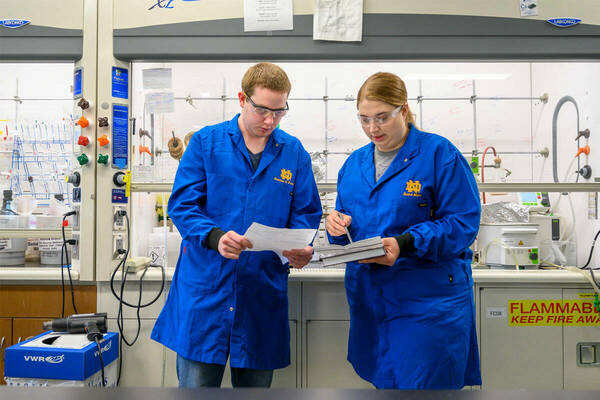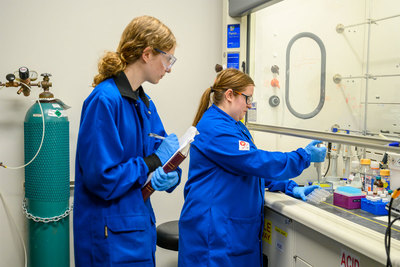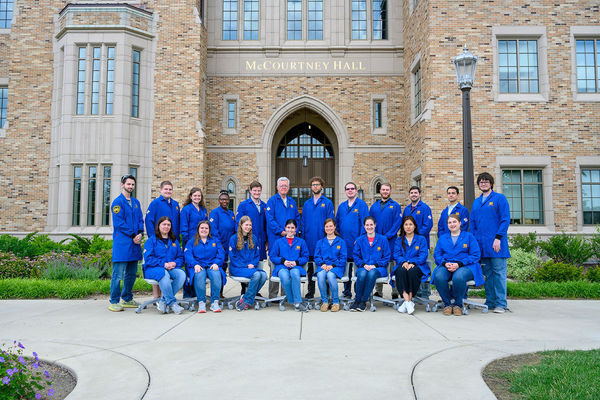
Striving for safety should be part of the regular culture in chemistry laboratories, professors say, and a new program at the University of Notre Dame is solidifying that mindset.

“When I was a grad student, truthfully, it was kind of uncool to wear personal protective equipment, but we’re trying to do the opposite tack, where it’s cool to be safe,” said Mary Prorok, assistant chair of the Department of Chemistry and Biochemistry, who, along with Masaru K. Kuno, chemistry professor, are co-directors of the new Laboratory Safety Officer (LSO) training program in the department.
To meet that goal, Kuno devised the LSO program, which began in January. About 50 graduate students and postdoctoral researchers were trained during a two-day safety workshop taught by labsafety.org. This has since led to LSO-led walk-throughs of departmental laboratories. The walk-throughs take about an hour to complete and are extremely thorough. They are different from safety inspections—those are the domain of the University’s Department of Risk Management and Safety and would require knowledge of electrical and other systems outside the purview of chemists—and focus on laboratory-specific safety requirements.
“One of the motivations here is we want to empower the students, because the students are the ones who are actually seeing things in the laboratory,” Kuno said. “They are sort of on the front lines, so to speak, as opposed to me, who’s behind a computer much of the day.”
Rachel Miller, a biochemistry graduate student, decided to be an LSO because safety is important to her, and yet, not a topic people talk about unless there is an accident. Also, she wanted to receive more training because knowledge of safe practices and procedures is necessary for any laboratory work she will do in the future.
“The lab safety program has made our department as a whole more aware of current safety practices, and gives us a reason to talk about safety issues for our given fields of study,” she said. “This open communication has made it easier for labs to share safety tips and good practices, and I have benefited directly from seeing what other labs are doing well, and have implemented some of these procedures in my lab.”

Tracy-Lynn Lockwood, an analytical chemistry graduate student, noted that the LSO program was strategically designed to not only allow her and others to increase their knowledge of Notre Dame and OSHA safety policies, but also to gain professional development experience and learn from others. “These are crucial steps they can take to their next step in their careers,” she said.
Universities heightened their attention to laboratory safety after the 2008 death of University of California at Los Angeles research assistant Sheri Sangji. She suffered severe burns from a fire when a syringe she used to transfer a highly flammable chemical spilled the liquid onto her clothing.
“That was a wake-up call, and a lot of universities took that case to heart,” Kuno said. “It woke up the chemistry community.”
Graduate students who participate in the program are offered some incentives including professional development awards, a personalized lab coat, and luncheons.
“Communication is one of the keys to success. Implementing the laboratory safety program has made safety related communication across the various laboratory cultures of the department more easily accessible,” said graduate student Alexander Erickson, a lab safety officer. “This program has challenged every departmental citizen to help build up the cuture of laboratory safety on campus.”

Originally published by at science.nd.edu on June 25, 2019.